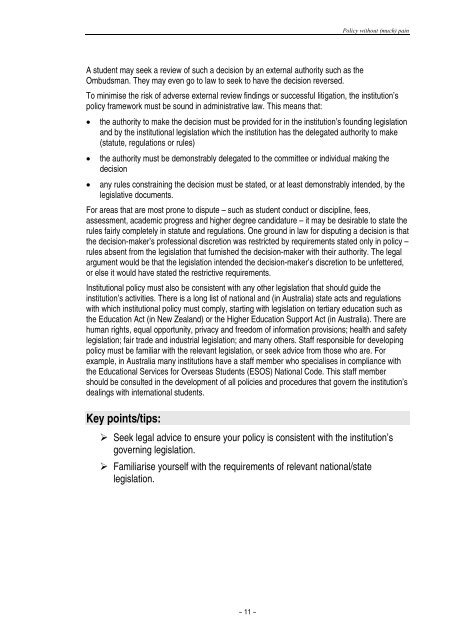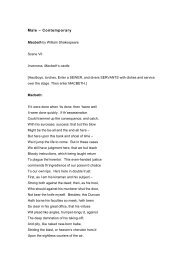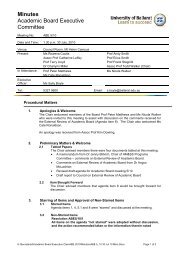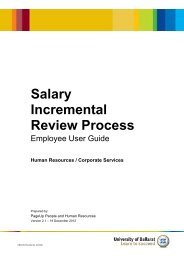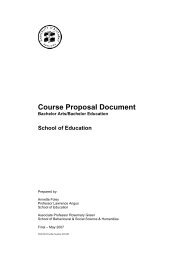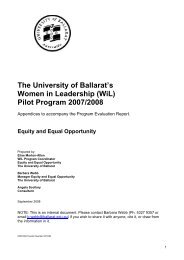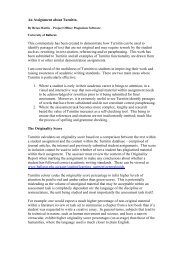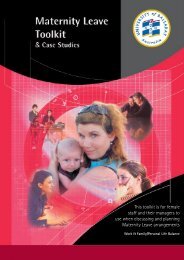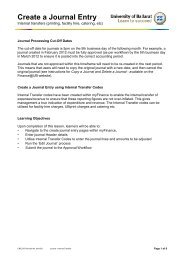Policy without (much) pain - University of Ballarat
Policy without (much) pain - University of Ballarat
Policy without (much) pain - University of Ballarat
- No tags were found...
Create successful ePaper yourself
Turn your PDF publications into a flip-book with our unique Google optimized e-Paper software.
<strong>Policy</strong> <strong>without</strong> (<strong>much</strong>) <strong>pain</strong>A student may seek a review <strong>of</strong> such a decision by an external authority such as theOmbudsman. They may even go to law to seek to have the decision reversed.To minimise the risk <strong>of</strong> adverse external review findings or successful litigation, the institution’spolicy framework must be sound in administrative law. This means that:the authority to make the decision must be provided for in the institution’s founding legislationand by the institutional legislation which the institution has the delegated authority to make(statute, regulations or rules)the authority must be demonstrably delegated to the committee or individual making thedecision any rules constraining the decision must be stated, or at least demonstrably intended, by thelegislative documents.For areas that are most prone to dispute – such as student conduct or discipline, fees,assessment, academic progress and higher degree candidature – it may be desirable to state therules fairly completely in statute and regulations. One ground in law for disputing a decision is thatthe decision-maker’s pr<strong>of</strong>essional discretion was restricted by requirements stated only in policy –rules absent from the legislation that furnished the decision-maker with their authority. The legalargument would be that the legislation intended the decision-maker’s discretion to be unfettered,or else it would have stated the restrictive requirements.Institutional policy must also be consistent with any other legislation that should guide theinstitution’s activities. There is a long list <strong>of</strong> national and (in Australia) state acts and regulationswith which institutional policy must comply, starting with legislation on tertiary education such asthe Education Act (in New Zealand) or the Higher Education Support Act (in Australia). There arehuman rights, equal opportunity, privacy and freedom <strong>of</strong> information provisions; health and safetylegislation; fair trade and industrial legislation; and many others. Staff responsible for developingpolicy must be familiar with the relevant legislation, or seek advice from those who are. Forexample, in Australia many institutions have a staff member who specialises in compliance withthe Educational Services for Overseas Students (ESOS) National Code. This staff membershould be consulted in the development <strong>of</strong> all policies and procedures that govern the institution’sdealings with international students.Key points/tips:‣ Seek legal advice to ensure your policy is consistent with the institution’sgoverning legislation.‣ Familiarise yourself with the requirements <strong>of</strong> relevant national/statelegislation.~ 11 ~


